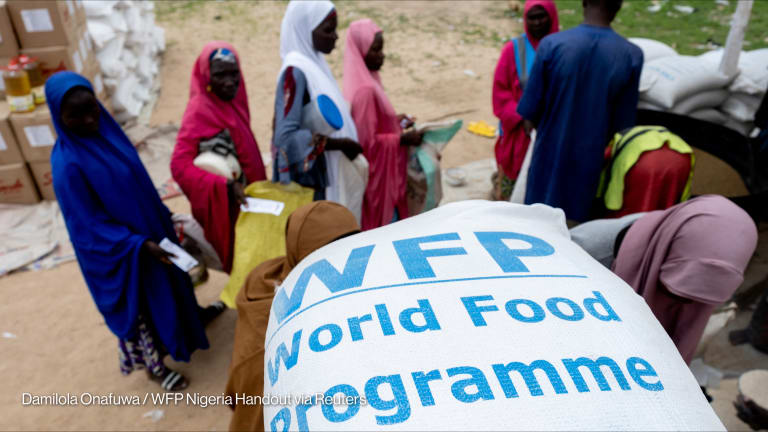
As a third wave of COVID-19 infections sweeps across Africa, the full impact of the pandemic on serious illness and mortality remains to be seen. In economic terms, the picture is already much starker. Getting the continent back on to a sustainable and inclusive path will require a host of measures, ranging from fostering digitalization to extending social protection measures.
Naturally, much attention might be focused on jump-starting extractive industries, tourism, and other money-generating sectors.
Yet when it comes to setting priorities, African governments would do well to heed the words of African Union Commissioner for Infrastructure and Energy Amani Abou-Zeid: “Data is the world’s biggest, most expensive and most important commodity. It narrows both information and time gaps. Africa cannot afford to ignore its untapped potential for decision, policy making, and socio-economic development.”
The economic and social consequences of the pandemic have been highlighted in the 2021 Ibrahim Forum Report. With social safety nets on the continent already weak, Africa’s first recession in over 25 years is set to lead millions more Africans into poverty, widen inequalities, and further fuel food insecurity.
To fight COVID-19 we need data, says WHO's chief scientist
Among the hurdles facing the pandemic response is the lack of data on deaths. WHO Chief Scientist Dr. Soumya Swaminathan chalks out the plan to solve the problem.
Recovery requires coordinated and effective actions to quash the coronavirus pandemic, but also broad-based growth and bold governance reforms. These are laudable objectives, indeed. Yet they demand sophisticated and widespread data and statistical infrastructure to be in place across governments that, in many cases, are still missing.
Exceptions exist, of course. In Mali, a national fund for the development of statistics is financed by a levy on the import of goods. The funding is used to finance surveys and censuses, as well as to support the strategic planning of statistical activities.
More broadly, the Africa Programme on Accelerated Improvement of Civil Registration and Vital Statistics, or APAI-CRVS, is building a common and consolidated policy and advocacy framework for CRVS initiatives on the continent.
But for governments that lack data, and hence the ability to analyze citizens’ needs and be aware of who is being left behind, or where and how to improve service provision and transparency, recovery objectives will be both more difficult and more costly to achieve. These are the challenges that we seek to address in our recent report, “Bridging the Data Policy Gap in Africa.”
“Data is the world’s biggest, most expensive and most important commodity. … Africa cannot afford to ignore its untapped potential for decision, policy making, and socio-economic development.”
— Amani Abou-Zeid, commissioner for infrastructure and energy, African UnionIn it, we find that statistical capacity across the continent remains low compared to other regions. Many African statistics offices are hampered by a shortfall in financial and human resources, and lack the capacity to provide timely, high-quality data. In addition, data literacy and a culture of prioritizing data in policy design and monitoring are not widespread.
The COVID-19 pandemic, which has driven many national statistical offices to the breaking point, has exacerbated these challenges by vastly increasing the demand for to-the-minute data on disease transmission and economic consequences.
But some African countries have barrelled ahead with digital innovation at a pace to be envied. And the good news is they may be in a position to bring in new sources of data, such as telecommunications records and satellite imagery, to make policymaking and governance more effective and inclusive.
To do this, nations need to establish effective data governance frameworks that protect the rights of citizens and draw boundaries around what the private sector can and cannot do.
In charting their post-pandemic recovery and the path towards the ambitious targets of the African Union’s Agenda 2063, African governments may be tempted to steer a course toward projects that readily attract media attention and donor funds, such as blockchain-based transparency measures or drone-based health care delivery.
But they cannot overlook the need to get the fundamentals right. To thrive in a data-driven, digital world — where transparency and accountability are the watchwords — African countries need well-functioning national statistical systems.
By investing in the digitalization of those systems now, and ensuring that they are transparent and efficient, African leaders will reap dividends tomorrow in terms of better policies for better lives for all.
Visit the Building Back Health series for more coverage on how we can build back health systems that are more effective, equitable, and preventive. You can join the conversation using the hashtag #BuildingBackBetter.








